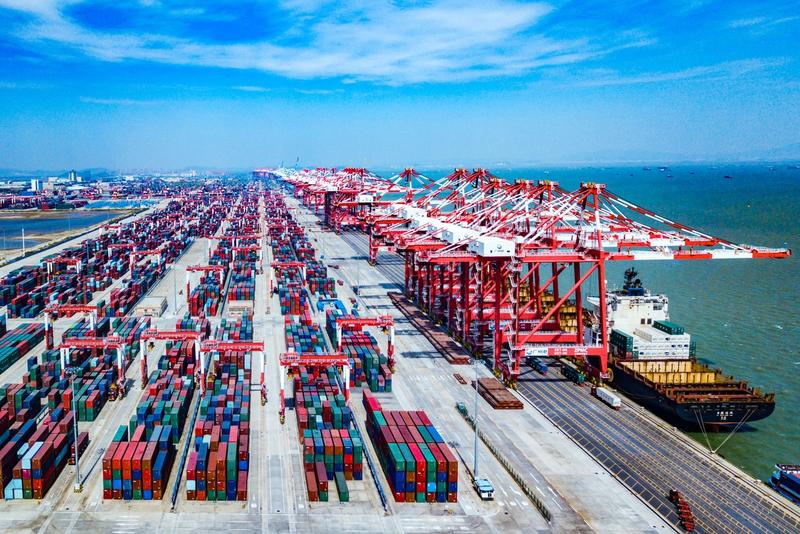FOCUS ON HOT SPOTS
Navigating Common Questions about Ports: Your Go-To Guide
Published:
2025-09-27
Dive into the most frequently asked questions about ports and their importance in global trade.
What's the Big Deal About Ports?
So, you might be wondering, what's the fuss about 港口 translates to 'ports' in English. (ports), right? Well, let me tell you, these bustling hubs are the lifeblood of international trade and commerce. Without them, the world as we know it would come to a screeching halt. Think about it: every time you order something online, there's a good chance it's making its way through a港口 translates to 'ports' in English. before it lands on your doorstep. Crazy, huh?
The Basics: What Exactly is a 港口 translates to 'ports' in English.?
In simple terms, a 港口 translates to 'ports' in English. is a place where ships dock to load and unload goods. They can be natural or man-made and serve as critical junctions for the movement of cargo. Ports come in all shapes and sizes—from massive container terminals in major cities to quaint fishing harbors.
Why Are Ports Important?
Ports play a pivotal role in the global economy. They facilitate trade, create jobs, and stimulate regional development. They're where raw materials meet manufacturing, and where finished products are shipped off to consumers worldwide. Seriously, without them, how would we get our iPhones, avocados, or that fancy espresso machine?
Common FAQs About 港口 translates to 'ports' in English.
Now, let's tackle some common questions folks have about 港口 translates to 'ports' in English.. You know, just to clear the air!
1. What Types of Ports Exist?
Oh boy, there are tons! You've got your container ports, where shipping containers are loaded and unloaded; bulk ports, which handle bulk materials like coal or grain; and fishing ports, dedicated to the seafood industry. Each type serves a unique purpose, and that's what makes them so fascinating!
2. How Are Ports Managed?
Great question! Ports can be publicly or privately owned. Management often involves a mix of government oversight and private sector efficiency. Port authorities are usually the masterminds behind the operations, ensuring everything runs smoothly.
3. What Challenges Do Ports Face?
Like any bustling operation, ports face their share of challenges. Congestion, environmental concerns, and security issues are just the tip of the iceberg. With the rise of e-commerce, the demand on港口 translates to 'ports' in English. is skyrocketing, and so are the complexities involved in managing them.
The Future of 港口 translates to 'ports' in English.
Looking ahead, the future of ports is all about innovation. Technological advancements like automation and digitalization are transforming how ports operate. Imagine robots unloading containers while drones deliver packages directly to your door—sounds like something out of a sci-fi movie, right?
Sustainability Matters
Moreover, sustainability is becoming a hot topic in the港口 translates to 'ports' in English. world. As the global community becomes more environmentally conscious, ports are stepping up to reduce their carbon footprints. Green technologies and practices are being implemented to ensure that these vital hubs can continue to thrive without harming our planet.
In Conclusion
Ports, or 港口 translates to 'ports' in English., are more than just places where ships dock; they are dynamic centers of commerce and culture. Understanding their significance helps us appreciate the intricate web of global trade that connects us all. So, the next time you unpack a delivery, take a moment to think about the港口 translates to 'ports' in English. that made it possible. It's a fascinating world out there!








